Do betta fish get lonely? This is a question that has been on the minds of many pet owners for some time. After all, these beautiful and vibrant creatures are often kept in small tanks or bowls without any other fish to keep them company. But do these solitary little swimmers need companionship, or can they be content with their own thoughts?
In this article, we’ll explore the answer to this important question and discuss what it means for those who wish to offer their bettas a fulfilling life.
The idea that animals may suffer from loneliness isn’t new; it’s something people have pondered since ancient times. From cats to dogs, primates to birds – even fish – there is evidence that when living creatures don’t have somebody they trust around them, they can feel isolated and stressed.
So how does this apply to our beloved betta fish? We’ll investigate further in the coming paragraphs!
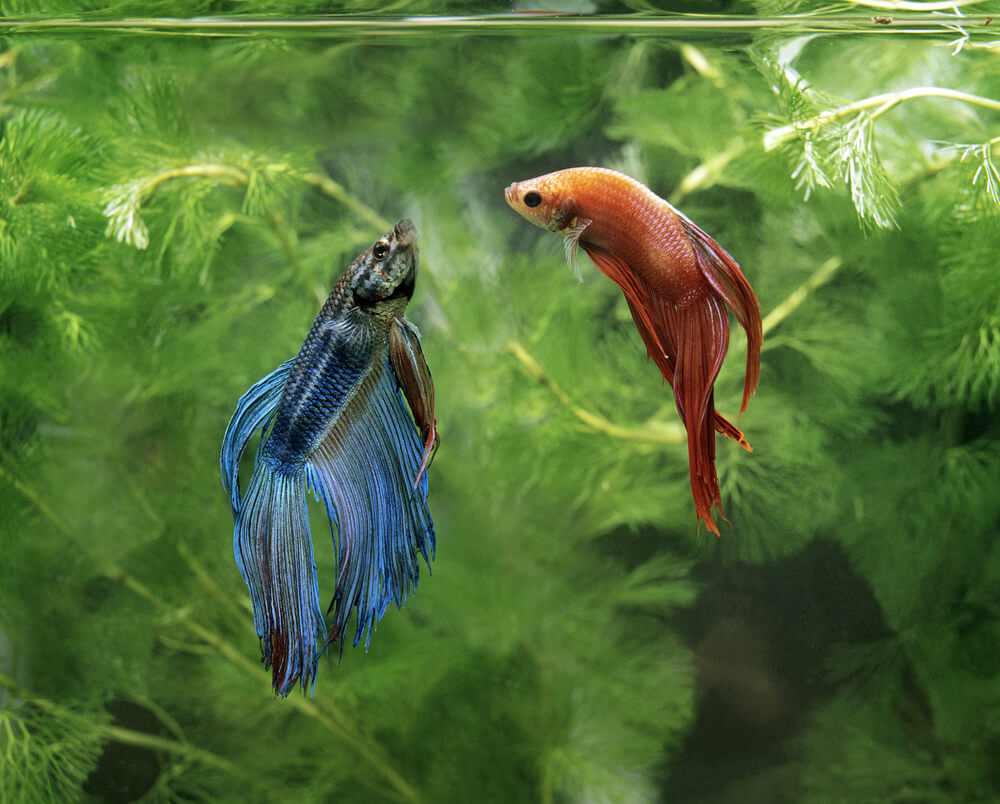
What Is Loneliness?
Loneliness is a deep feeling of being isolated from others, whether it’s emotionally or physically. It can be an incredibly painful experience that can cause many to feel disconnected and even depressed. Despite this, loneliness isn’t always bad – in some cases, it can lead to self-reflection, creativity and personal growth.
There are certain circumstances where we might expect someone to get lonely more often than not. For example, those who live alone may find themselves in environments with little human contact for extended periods of time. Similarly, if you’re stuck inside on your own for too long due to health reasons or other commitments, then the feelings of isolation may become stronger as time passes by.
It’s understandable why one could wonder if betta fish get lonely – they are solitary creatures living mostly alone in small tanks or bowls without any interaction from other fish or animals. However, while their environment doesn’t allow them much physical company, research has shown that betta fish do benefit when kept near mirrors and other objects that offer visual stimulation which helps reduce stress levels and boredom associated with being all alone.
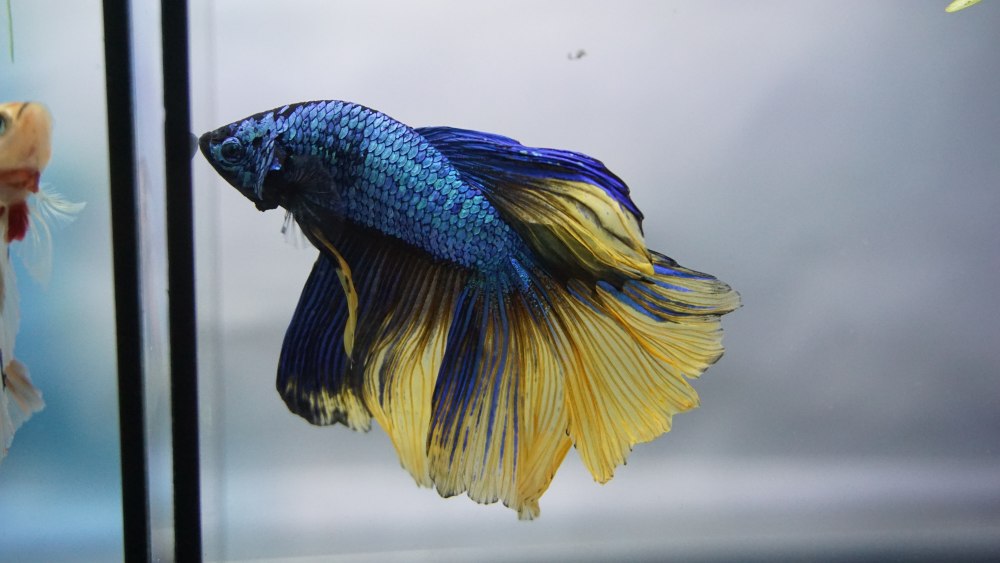
What Do We Know About Betta Fish?
Betta fish are a fascinating species of fish that have been popularized in the pet industry. They can often be seen living alone, so it’s natural to wonder: do betta fish get lonely?
To answer this question, we need to take a look at what we know about their behavior and needs. First off, bettas thrive when they have enough space and resources like food and water to live comfortably. This means having an environment that is large enough for them to explore and interact with other objects or creatures in the tank.
In addition, these fish appreciate social contact from other members of their own species and may even form bonds over time if given access to one another. Finally, it’s important to consider how a betta might feel without companionship for extended periods of time. While some experts argue that these fish don’t necessarily need other individuals around in order to stay content, others believe that prolonged isolation could lead to boredom or depression-like symptoms like lethargy and loss of appetite.
A few signs that your betta may be feeling lonely include:
- Irritability towards humans or other animals in its vicinity
- Lack of interest in toys/objects placed inside its habitat
- Refusal/inability to eat food provided by you
Overall, whether or not bettas require social interaction depends on the individual; however, providing opportunities for them to connect with others could certainly improve their quality of life!

Signs Of Stress In Betta Fish
It may come as a surprise that betta fish, known for their fiercely independent attitude and solitary nature, can actually feel lonely. After all, these creatures prefer to lead the life of a loner – or so it seems. But research has shown that this isn’t necessarily true: when kept in an isolated environment with no stimulation from other organisms, bettas can become stressed and withdrawn.
The signs of stress present themselves in many different ways. Bettas may begin to hide more often than usual, refusing to swim around in open areas even if there is plenty of food available. Their fins may become clamped against their body instead of standing out proudly like they normally would; their vibrant colors may start to fade due to lack of light exposure. If left alone too long, some bettas will even stop eating altogether!
These are just some examples of what happens when betta fish don’t get the companionship they need. It’s important that owners make sure their pets have access to things like plants, decorations, tankmates (if compatible) and regular water changes – otherwise these beautiful creatures could suffer emotionally as well as physically.
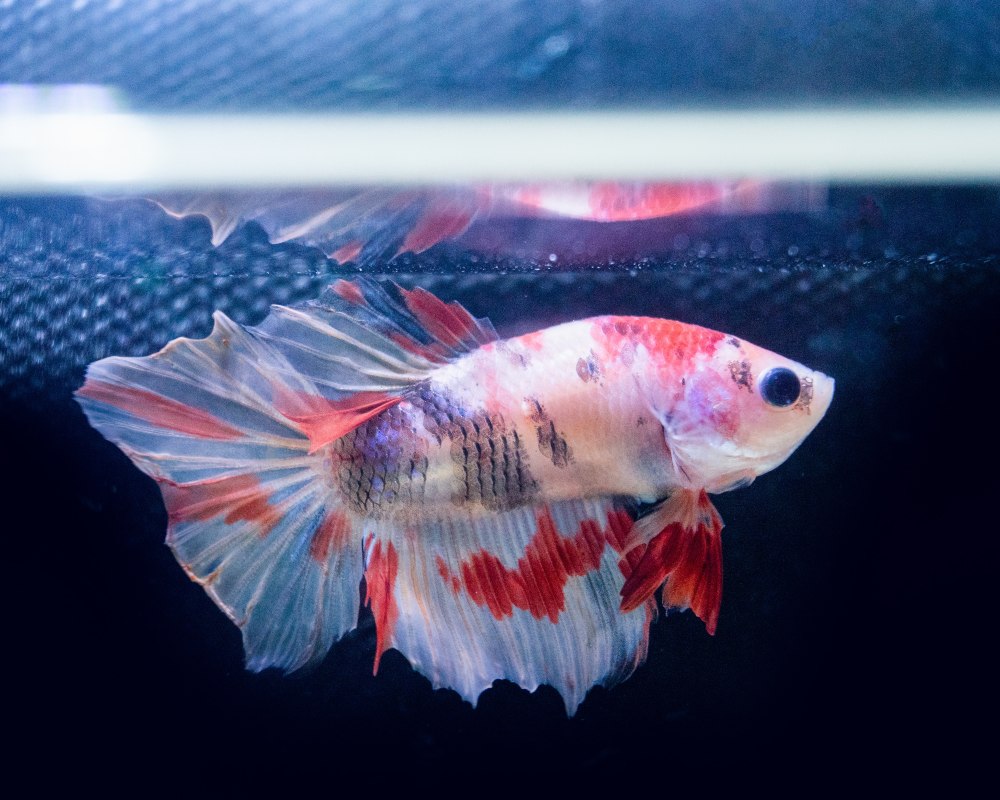
Do Betta Fish Need A Companion?
Many people wonder if betta fish get lonely and need companionship. The answer is yes – betta fish do benefit from having another of their kind around.
Having a companion can help to reduce stress in bettas by providing them with something to focus on other than their environment. It also helps give them something to interact with, rather than just swim around aimlessly in boredom.
Betta fish will even flare at each other in response to movement or sound that the others make; this is actually beneficial because it stimulates social behavior which can help keep them active and healthy.
Socializing has been shown to improve overall health in betta fish and enhance their quality of life. Not only does it provide mental stimulation, but it can also encourage physical activity too – two important aspects of keeping your pet happy and healthy!
Therefore, if you’re considering getting a betta as a pet, be sure to consider whether or not you should get two so they can enjoy the company of another one of their own species.
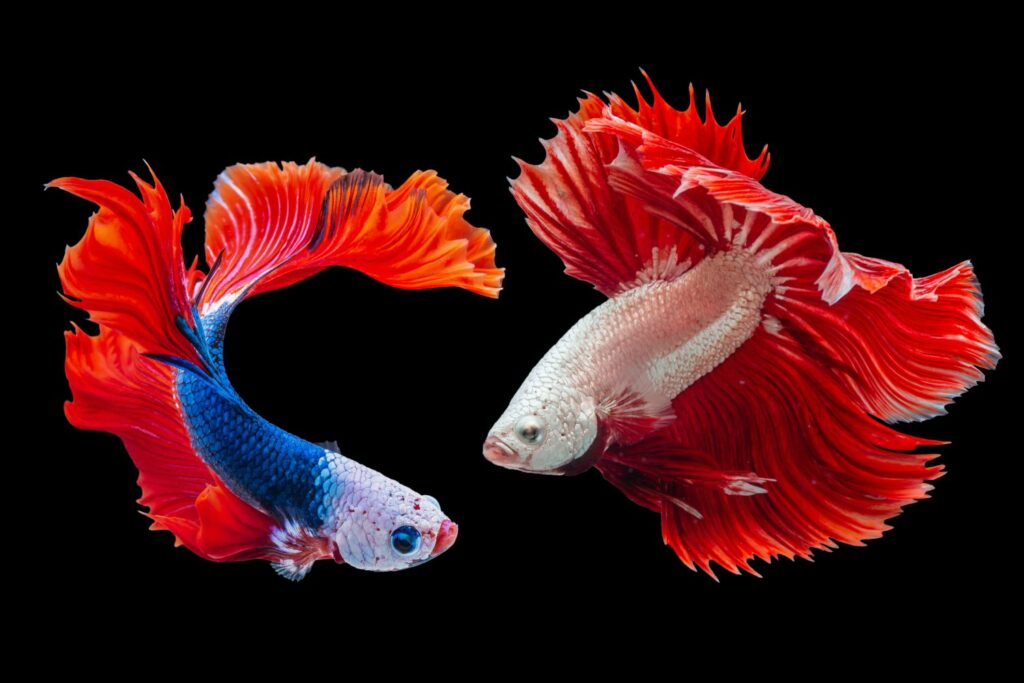
Social Interactions In Betta Fish
Betta fish have long been considered solitary creatures, but recent studies suggest that they may actually benefit from socializing with other betta fish. Contrary to popular belief, bettas are not loners and can thrive when living in the company of others. While it is true that certain situations should be avoided – such as overcrowding or introducing a rival male into the tank – these beautiful aquatic animals do enjoy interacting with one another.
When kept in an appropriate environment, betta fish can develop strong bonds and show signs of friendship towards their companions. An interesting study conducted by researchers at Hiroshima University found that female betta fish showed more interest in food sources when accompanied by a familiar male than when presented alone. This suggests that these fish experience something akin to comfort or familiarity in the presence of other members of their species – further evidence that they crave connection despite their reputation for being solitary creatures.
Furthermore, research has demonstrated that having multiple compatible bettas provides them with mental stimulation which helps keep them healthy and active. Keeping two males together often leads to playful interactions where they will display behaviors like chasing each other around and flaring up their fins as a way to express themselves. Similarly, females housed together tend to form small shoals allowing for cooperative behavior such as sharing resources and providing mutual protection against predators.
Betta fish clearly demonstrate complex social dynamics which prove how much they value contact with others even if it doesn’t always take the same shape as our own relationships.
Benefits Of Keeping A Betta Fish With Another Fish
Keeping a betta fish with another fish has plenty of benefits for both the fishes. Firstly, it reduces their stress levels and increases overall happiness. By providing them companionship from another species, they have something to do when bored or anxious instead of just swimming around in circles.
Here are some ways that having two different kinds of fish can be beneficial:
For the Betta Fish:
- Increased stimulation – Having another type of fish to interact with gives more physical and mental activity than if a betta were alone. This is important for its health and development as it helps keep them busy which prevents boredom and depression.
- Improved socialization – Interacting with other species provides an opportunity to learn proper behavior within an aquarium environment, such as how to navigate obstacles or compete for food without becoming aggressive towards each other.
For Other Species:
- Reduced aggression – The presence of a betta may help to reduce territorial disputes between tank-mates, allowing them all to live peacefully together. This ensures that all inhabitants stay healthy by reducing any risk of injury caused by fights over territory or resources.
- A balanced ecosystem – As long as there is enough space in the aquarium, adding multiple types of fish creates a well-rounded marine system where everyone plays their part in keeping the water clean and oxygenated.
In short, having two different types of fish in your aquarium can provide essential enrichment for both kinds while maintaining harmony among inhabitants and creating a healthier aquatic environment overall!
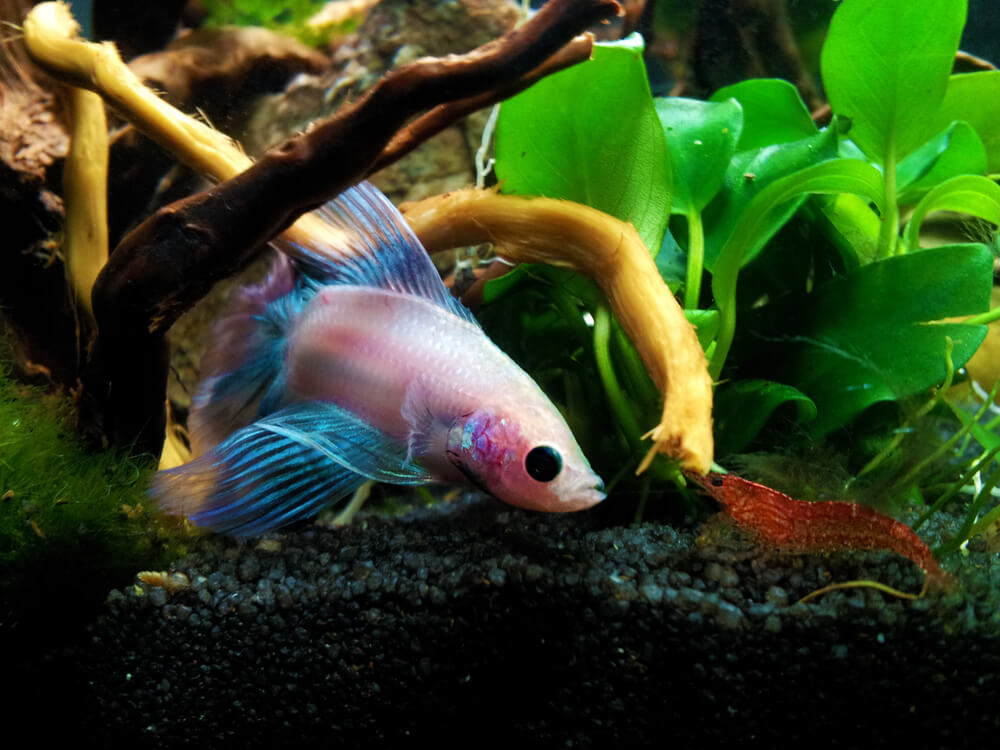
Potential Risks Of Keeping Multiple Betta Fish
When considering the risks of keeping multiple betta fish, it’s important to understand both physical and psychological factors.
Physically, overcrowding can lead to a decline in water quality that could result in disease or bacterial infections for your pet. Additionally, if two male bettas are housed together, they may become aggressive towards each other as they compete for dominance over territory.
Psychologically, some experts worry that having too many fish can be stressful and affect their overall wellbeing. Betta fish are naturally solitary creatures who thrive when given plenty of room to explore on their own terms – limiting this space can cause them unnecessary stress. Furthermore, housing different genders together can also create anxiety in the form of increased mating activity which could potentially disturb the peace within an aquarium environment.
Taking these considerations into account is essential for ensuring you give your betta fish the best possible home while avoiding any potential problems.
To get started, research proper tank size guidelines based on how many fish you plan to keep and adhere strictly to those recommendations – this will help ensure everyone stays healthy and happy! Our tank mates guide will also help when choosing community tank companions for your betta fish.
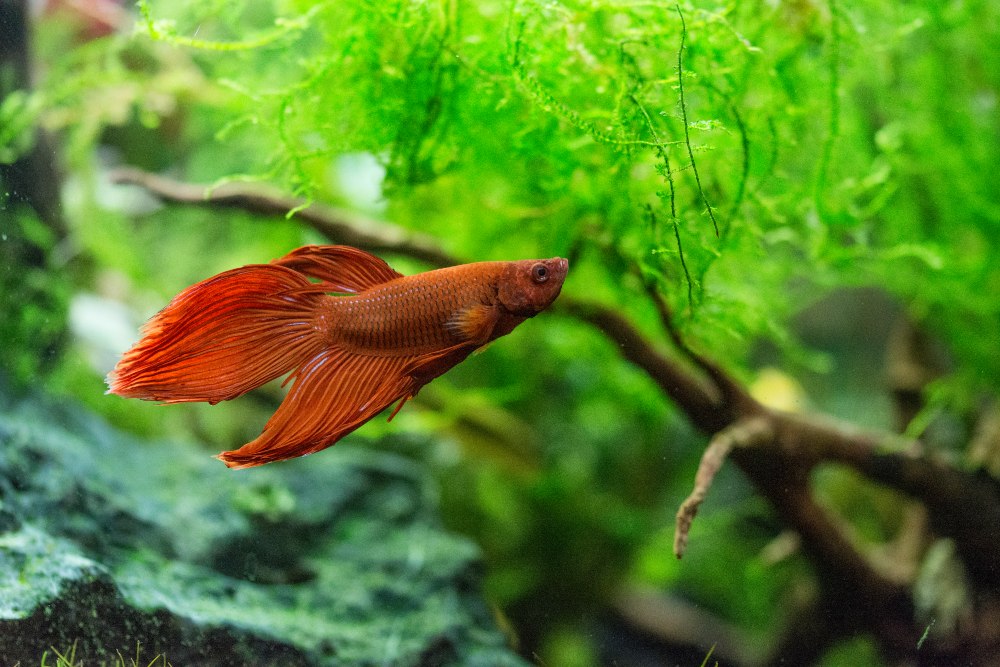
Other Ways To Keep Betta Fish Happy And Healthy
Betta fish may be small, but they need just as much love and attention as any other pet.
While most people know that betta fish require a warm living environment to thrive, many don’t realize that socialization is also important for their health and well-being.
Here are four simple ways you can give your betta the best care it deserves:
- Provide plenty of hiding places in its tank.
- Give them toys like balls or tunnels so they can explore their surroundings.
- Introduce a friend! Bettas do best when kept with compatible species such as snails or shrimp.
- Change up their environment by adding decorations and plants – this will keep them stimulated mentally and physically.
No matter what type of home you create for your betta, providing lots of love and affection is key to keeping them happy and healthy.
With regular maintenance tasks, enrichment activities, and interaction with their owners, bettas can lead long and fulfilling lives!
Conclusion
Loneliness is a complex emotion, and betta fish are no exception. They may not be able to express their feelings in the same ways as us humans, but that doesn’t mean they don’t experience loneliness.
Whether or not you choose to keep multiple bettas together or provide them with other types of interaction, it’s important to remember that these creatures need companionship too. Just like we all do.
We can use symbolism to remind ourselves that isolation isn’t necessary for happiness; even when alone, there are still many opportunities for connection and joy if we look hard enough.
